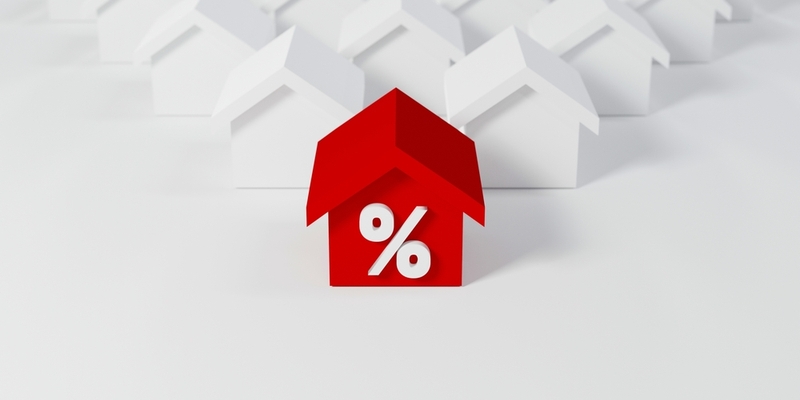
If you are not redirected within 30 seconds, please click here to continue.
Samedi: 10h – 16h HAE

If you are not redirected within 30 seconds, please click here to continue.
If you are not redirected within 30 seconds, please click here to continue.
Bank of Canada delivers 25-bps hike, raising rate to 5%

Table of Contents
The Bank of Canada (BoC) has yet again raised interest rates by 25 basis points, bringing the benchmark overnight rate to 5.0%.
“Global inflation is easing, with lower energy prices and a decline in goods price inflation,” the Bank states in its press statement. “However, robust demand and tight labour markets are causing persistent inflationary pressures in services.
While the rate of inflation is declining steadily – 3.4% in June as compared to an all-time high of 8.13% during the same period last year – it is still well above the BoC’s target rate of 2%. However, BoC notes that the drop in inflation was largely due to lower energy prices, and less from easing underlying inflation.
“Canada’s economy has been stronger than expected, with more momentum in demand,” BoC says. While consumption growth has been surprisingly strong at 5.8% in the first quarter, the Bank expects consumer spending to slow down in response to the cumulative interest rate hikes.
Slowing down the pace of inflation
“The cooler inflation reading for May definitely gives [BoC] a little more breathing room,” says Jennifer Lee, a senior economist with BMO Capital Markets. “But the core measures are still sticky and are still firmly above the 2% target.”
If easing inflation was anything to go by, economists were predicting a rate pause, until June’s employment rates (62.20%) demonstrated a hot labour market, which tipped the scales in favour of a predicted rate increase.
Lee notes that the monthly job reports can be volatile. While there was an increase in the unemployment rate and earnings growth slowed, this is a positive sign for the BoC as it suggests that demand for goods and services will slow, translating into cooler inflation.
“The BoC does not want the economy to overheat and needs it to slow down the pace of growth to bring inflation back to target,” she says.
As interest rates increase, Canadians are also finding their finances stretching further and further, with insolvency rates reaching an all-time high. More than half of Canadians report that they cannot meet all their financial obligations.
“There will be Canadians who will struggle as rates rise, as their debt burdens increase as borrowing costs rise,” Lee says. “But if policy does not tighten, that would give inflation more room to heat up and that would be negative for all Canadians.”
The BoC notes that excess demand and elevated core inflation are both proving more persistent, and the Bank will continue to assess the evolution of excess demand, inflation expectations, wage growth, and pricing behaviour.
According to the July Monetary Policy Report projection, inflation rates will hover around 3% in 2024, before gradually declining to 2% mid-2025.
Tiff Macklem, governor of BoC has repeatedly stated that he needs to see economic growth slow further as evidence of the kind of progress the Bank is looking for.
Housing activity slows down
According to the Toronto Regional Real Estate Board’s (TRREB) market report, Toronto housing market’s seasonally adjusted sales were down in June as compared to the previous month, although the demand for homeownership remained stronger during the same period last year.
“Home sales were hampered last month by uncertainty surrounding the Bank of Canada’s outlook on inflation and interest rates.” states Paul Baron, the president of TRREB in a press statement.
According to Victor Tran, a RATESDOTCA mortgage expert, the real estate market typically slows down in the summer. “Given the lack of inventory, the housing market is likely to be even slower in the coming months. A rate hike will likely slow things even further,” he says.
While, he says, a rate hike might “loosen up” some inventory, there isn’t likely to be real movement in real estate until fall. “It may take a few payment cycles for variable-rate holders to feel the effects of a higher interest rate,” he adds.
For those renewing their mortgages in 2023 and 2024, he explains, they’ll be facing significantly higher rates since they first took out the mortgage. “Another rate hike pushes renewal rates higher as well. Those that are up for renewal in the coming year or two should be planning on how they will absorb the extra cost now,” he adds.
The next BoC announcement is scheduled for September 6, 2023.
Read more:
June: Bank of Canada raises overnight rate by 25-bps hike, policy rate now at 4.75%
April: After eight successive rate hikes, Bank of Canada maintains policy rate at 4.5%
Get money-saving tips in your inbox.
Stay on top of personal finance tips from our money experts!










